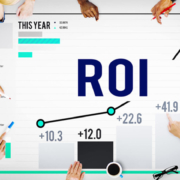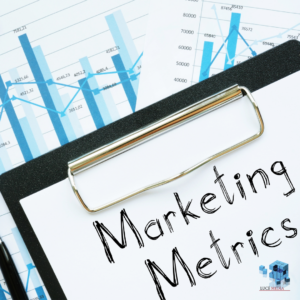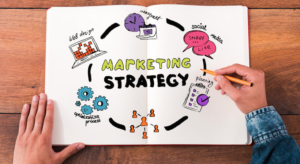How to Leverage Data-Driven Marketing in 2025: Tools & Strategies
In 2025, data-driven marketing is no longer a luxury but a necessity for businesses striving to thrive in an increasingly competitive and digital-first world. As consumers demand personalized experiences and measurable value, leveraging data effectively has become the cornerstone of successful marketing strategies. This guide explores what data-driven marketing entails, why it matters, and how to implement actionable tools and strategies to boost your ROI and optimize campaigns.
The Importance of Data-Driven Marketing in 2025
Data-driven marketing uses data analysis and interpretation to craft targeted marketing strategies and measure their success. In 
The benefits of data-driven marketing are profound:
- Improved Personalization: Deliver tailored content that resonates with individual customers.
- Higher ROI: Allocate budgets to high-performing channels and campaigns.
- Smarter Decision-Making: Base strategies on data-backed insights rather than assumptions.
Businesses that embrace data-driven approaches gain a competitive edge by meeting customer expectations efficiently and effectively.
Key Metrics to Track for Data-Driven Success

- Customer Acquisition Cost (CAC): To optimize spending, understand the cost of acquiring new customers.
- Customer Lifetime Value (CLV): Measure customers’ long-term value to your business.
- Conversion Rates: Evaluate the effectiveness of campaigns in driving desired actions.
- Bounce Rates: Identify opportunities to improve landing pages and website performance.
- Engagement Metrics: Monitor click-through rates (CTR), time spent on pages, and social media interactions.
Tracking these metrics enables businesses to identify trends, improve campaigns, and maximize marketing impact.
Tools to Analyze and Act on Data
Data-driven marketing relies heavily on technology to analyze and act on insights. Here are some essential tools to consider:
- Analytics Tools
- Google Analytics 4: Provides comprehensive insights into website traffic and user behavior.
- Mixpanel: Specializes in tracking customer journeys and product analytics.
- Adobe Analytics: Offers advanced predictive analytics and data visualization.
- Customer Data Platforms (CDPs)
- Segment: Centralizes customer data from multiple platforms for analysis.
- Salesforce CDP: Integrates seamlessly with Salesforce CRM to enrich customer insights.
- AI-Powered Marketing Tools
- Jasper AI: Generates data-driven content tailored to audience preferences.
- SEMrush: Helps analyze competitors’ strategies and optimize SEO performance.
- HubSpot AI: Provides automated lead scoring and personalized recommendations.
- Marketing Automation Platforms
- Mailchimp: Simplifies email campaigns with automated workflows.
- ActiveCampaign: Combines CRM and marketing automation for seamless customer experiences.
- Marketo: Powers personalized, multi-channel marketing campaigns.
The right combination of tools empowers businesses to translate data into actionable marketing strategies.
Strategies to Leverage Data-Driven Marketing
Implementing data-driven strategies involves more than adopting tools—it requires a structured approach to using data effectively:
- Audience Segmentation Use data to divide your audience into segments based on demographics, behaviors, or preferences. This allows you to craft messages that resonate with specific groups, increasing the likelihood of conversions.
- Predictive Analytics: Employ predictive models to anticipate customer behavior and market trends. For example, past purchasing patterns can be analyzed to identify which products will likely trend in the coming months.
- Personalization Personalization goes beyond addressing customers by name—leverage data to recommend products, craft tailored offers and create experiences uniquely relevant to individual customers.
- Omnichannel Optimization Integrate data across platforms to deliver a seamless customer experience. Ensure that customers encounter consistent messaging whether they engage with your brand via email, social media, or your website.
Case Study: A fashion retailer used audience segmentation and predictive analytics to target repeat buyers with exclusive promotions. The result? A 30% increase in sales within a month.
Overcoming Challenges in Data-Driven Marketing
While data-driven marketing offers immense potential, it also comes with challenges:
- Data Privacy Concerns: Compliance with regulations like GDPR and CCPA is critical. Businesses must ensure transparency and secure handling of customer data.
- Managing and Cleaning Big Data: Inaccurate or outdated data can hinder efforts. Regularly clean and validate data for accuracy.
- Skills Gap: Many teams lack the expertise to interpret data effectively. Invest in training or hire skilled professionals to bridge this gap.
Solutions include adopting user-friendly tools, outsourcing to experts, and fostering a culture of data literacy within your organization.
The Future of Data-Driven Marketing Beyond 2025

Predictions for the next five years include:
- Increased reliance on AI to automate campaign optimization.
- Greater emphasis on ethical data usage to build trust.
- Enhanced tools for integrating offline and online data.
Preparing for these changes now ensures that your business remains ahead of the curve.
Conclusion
Data-driven marketing is a powerful approach that empowers businesses to make informed decisions, personalize customer interactions, and achieve measurable results. By leveraging the right tools, focusing on actionable metrics, and overcoming challenges, businesses can unlock new opportunities and thrive in 2025 and beyond.
Are you ready to transform your marketing strategy? Explore the tools and strategies mentioned above and take the first step toward a data-driven future. Click here to find out MORE! Or setup a FREE consultation today!





